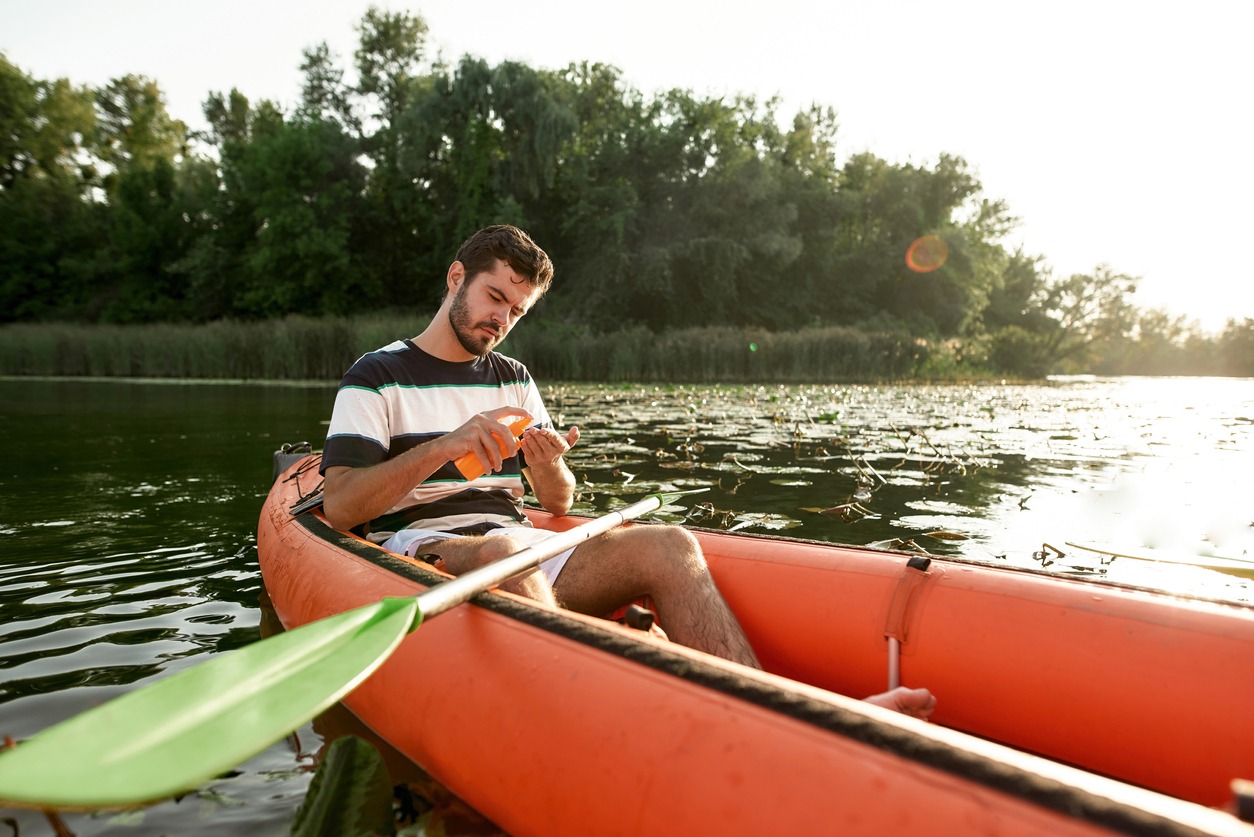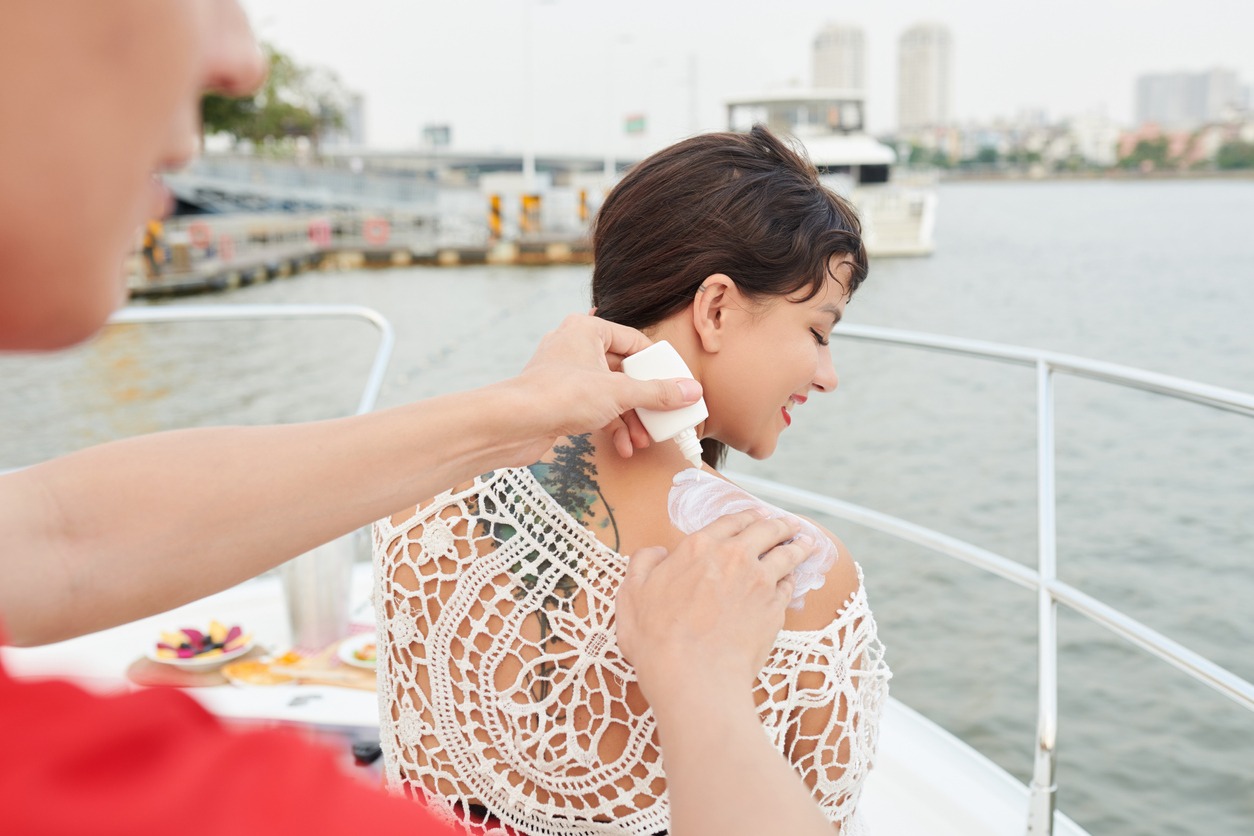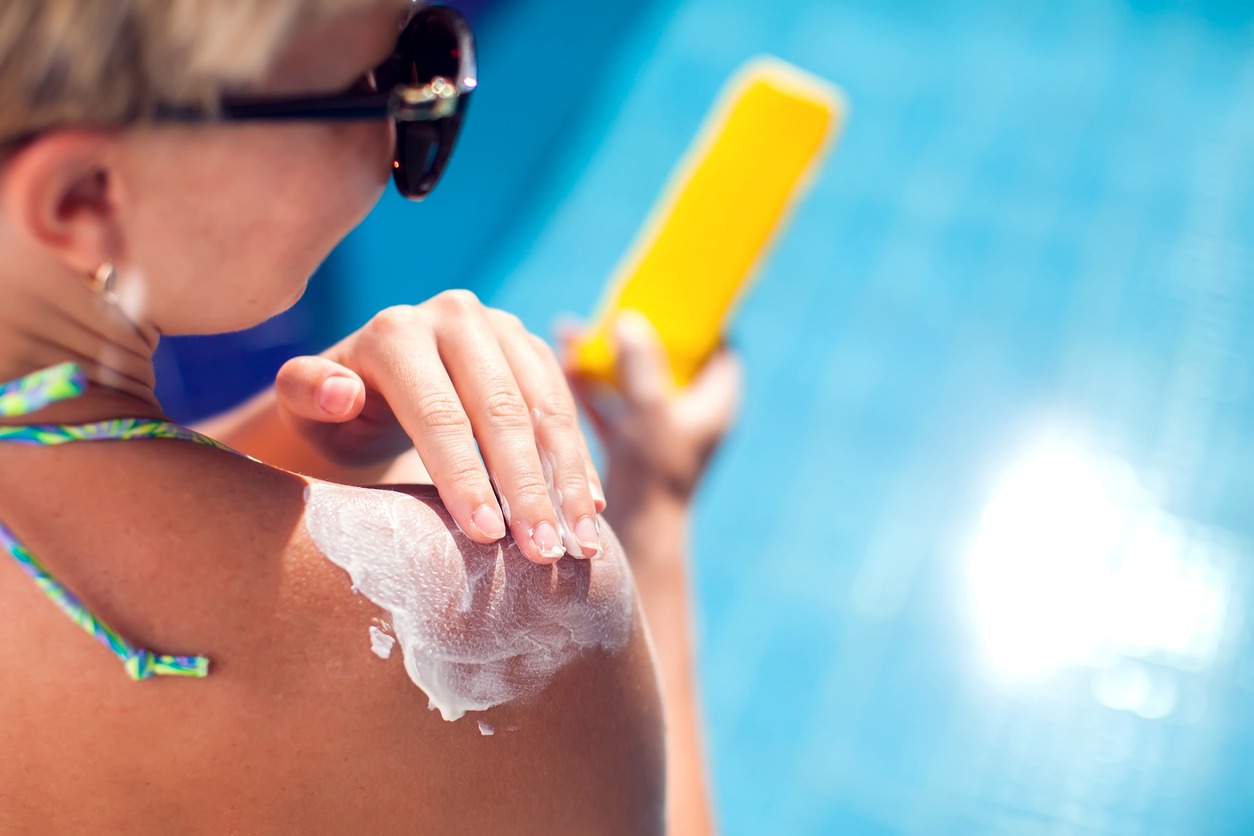Nothing compares to spending and enjoying good weather on the boat. Taking a breath of fresh air and admiring nature with your family or friends is a memorable experience. However, too much sun exposure without any protection could be harmful. And one way of protecting yourself from the dangerous effects of the sun is wearing sunscreen on your face and body.
Wearing sunscreen and constantly reapplying is essential in protecting yourself from the harmful effects caused by being under the sun. The harmful UV rays cause skin aging, dark spots, and wrinkles. Too much exposure to UV rays can also cause skin cancer.
There are a variety of sunscreens available on the market. We are here to help you pick the perfect sunscreen, especially for boating use.
Types of UV Rays
Before anything else, we should know the two types of UV or Ultra-Violet rays produced by the sun that are harmful to our skin.
UVA – penetrates the skin and causes premature skin aging, wrinkles, dark spots, and skin cancer.
UVB – affects the top layer of the skin and causes sunburn.
Types of Sunscreens
There are three types of sunscreens, mineral sunscreens, chemical sunscreens, and hybrid sunscreens. Here we will discuss the difference between the three sunscreens.
Mineral Sunscreens
Mineral sunscreens are also known as a physical sunscreens. They have two primary ingredients; titanium oxide and zinc oxide. Mineral sunscreens do not absorb into the skin. Instead, they sit on your skin’s surface and protect it by deflecting the UVA and UVB rays. They are also ideal for dry skin because they keep the skin moisturized. They are safe for sensitive skin due to the mineral/natural ingredients used.
However, mineral sunscreens could be heavy on the skin. They can also leave a white cast or residue.
Chemical Sunscreens
Chemical sunscreens have three common ingredients; oxybenzone, avobenzone, and octinoxate. They have UV-absorbing ability and convert them to heat. Chemical sunscreens are lightweight and do not leave a white cast.
Chemical sunscreens take about 15 minutes to activate because they need to be absorbed by the skin. Some of the ingredients could be irritating to sensitive skin.
Hybrid Sunscreens
Hybrid sunscreens contain both mineral and chemical ingredients. They provide you with maximum protection because of the merged UV-reflective ability of the mineral sunscreen and the UV-absorbing property of the chemical sunscreen.
However, hybrid sunscreens also contain chemicals that could irritate your skin. When using face sunscreen, it is best to test them on your skin before applying them to your face.
What to Look for in a Sunscreen
Choosing sunscreen could be challenging and confusing. Here are some features to look for in sunscreens.
Broad spectrum. Broad spectrum means that it can protect your skin from harmful UVA and UVB rays.
SPF 30 or higher. Choose a sunscreen that provides a sun protection factor or SPF 30 or higher. It can block and absorb UV rays giving you extreme protection.
Water-Resistant. Water-resistant sunscreen is ideal for boating activities. It protects your skin while you swim or sweat. However, reapplication is a must.
Quality Ingredients. Both physical and chemical sunscreen contains ingredients that protect you from UV rays. It is your preference which sunscreen best suits you. Physical sunscreen deflects UV rays, while chemical sunscreen absorbs UV rays and turns them to heat energy.
Tips for Boaters When Using a Sunscreen

For maximum protection, follow these following tips.
Apply sunscreen 15 minutes before sun exposure. Applying sunscreen in advance ensures that the product has absorbed your skin. This way, you are shielded from UV rays.
Reapply sunscreen every after 2 hours. No matter how many layers of sunscreen you apply, it will wear out after a couple of hours. Swimming and sweating can wash out the product. So, it is essential to reapply sunscreen every after two hours.
Never miss a spot. Don’t forget to apply sunscreen on your lips and the outer part of your ears, neck, and feet. These areas are as important as the rest of our body. They are also part of your skin that needs protection against the sun.
Wear lip sunscreen. Wearing a lip sunscreen that provides an SPF of at least 15 shields your lips from UV rays. Choose a lightweight product that does not feel heavy on your lips.
Put sunscreen on your face and body. There are separate sunscreens for your face and body. It is crucial to wear sunscreen that provides an SPF of at least 30 or higher, especially when you’re out in the sun.
Additional Tips for Boaters Against Sun Exposure
In addition to wearing sunscreen, here are other tips to protect yourself from the sun.
Use suitable clothing. Invest in clothes that offer sun protection. Sun-protective clothes work the same way as sunscreen. They block or absorb UVA and UVB rays. Consider wearing a wide-brimmed hat for extra protection.
Wear the right sunglasses. UV rays are also harmful to your eyes. Wearing sunglasses with polarized lenses is the way to go. They protect your eyes by blocking the dangerous sun rays.
Avoid the peak hours. Avoid the sun from 10 am to 4 pm. These hours are when the sun is intense and most harmful. However, if you can’t help it, wear sunscreen and other sun-protective outfits. This way, you are still safe from the sun’s UV rays.
Utilize your boat’s sunshade. Your boat can also offer sun protection. Make use of your boat’s sun cover, especially during peak hours.
In conclusion, it is essential to wear sunscreen when boating. It protects you from harmful UV rays that could damage your skin. Mineral sunscreens protect you by reflecting the sun away from your skin, while chemical sunscreens absorb UV rays and convert them to heat energy. Hybrid sunscreens are a combination of mineral and chemical sunscreen, shielding you from the dangerous effects of the sun. In addition to putting on sunscreen, there are other ways to safeguard yourself from the harmful sun. Investing in quality sun protection products is the best choice.
There are factors to consider in picking the ideal sunscreen for boating. We hope this article can help you choose the best sunscreen. These days, applying sunscreen on your face and body is a must, especially when you’re enjoying the day under the sun.

